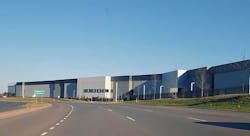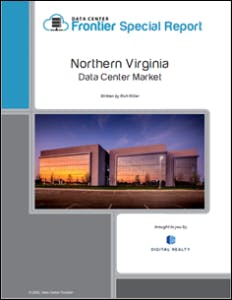Power and Taxes: The Business Environment in Northern Virginia
This week we conclude our special report series on the Northern Virginia data center market by looking at the region’s business environment, including the tax incentives that make it attractive to operators.
Get the full report.
Power Overview
To meet the voracious demand for data centers, the entire NoVa area has experienced uncommonly rapid growth of new electricity providers. According to published reports, Virginia has the lowest commercial electricity rates in the mid-Atlantic region. Virginia does not provide a wholly-competitive electricity market, but local regulators enable co-ops such as the NoVa Electric Cooperative (NOVEC) to resell service from monopoly provider Dominion Energy— doing business as Virginia Electric and Power. Therefore, the Virginia Electric and Power Company and NOVEC do not compete on price but rather on customer service offerings.
Hazard Risk Overview
The NoVa market is at low overall risk for natural disasters. NoVa is far enough inland to avoid the full force of hurricanes but does feel the impact of these storms’ remnants. While not an annual occurrence, large storms (called nor’easters) can strike the region with enough rain, snow, and ice to cause power outages and impede traffic. Earthquakes are rare in Virginia, with almost no significant activity in the past 50 years.
Tax Incentives Overview
The data center industry brings $1.2 billion in tax revenue into the Virginia economy annually, including $1 billion to local municipalities and $174 million to the state, according to a 2022 study from the Northern Virginia Technology Council. The study quantifies how the growth of cloud computing has created direct economic benefits for Virginia, Legislation making qualified data center facilities exempt from Virginia’s sales and use taxes went into effect in 2009. To qualify, data center providers must spend at least $150 million and create between 25-50 new jobs in the area. Revisions in 2016 not only extended those tax benefits to 2035, but also enabled aggregation of the requirements across multiple data centers and its tenants. This reduced the capital investment needed to receive the tax abatement and encouraged providers to build multiple smaller data centers.
Legislation making qualified data center facilities exempt from Virginia’s sales and use taxes went into effect in 2009. To qualify, data center providers must spend at least $150 million and create between 25-50 new jobs in the area.
Records show the Commonwealth of Virginia waived an estimated $65 million in state and local sales tax revenue for data centers in 2017 alone. These tax incentives, combined with Virginia’s business-friendly environment, attracts data center investment that would otherwise go to the District of Columbia and Maryland.
Connectivity Overview
The region’s proximity to every federal government agency’s headquarters obviously plays a role in that world-class network connectivity. As a result, the area’s robust technology and financial businesses grew up around that connectivity. Hundreds of thousands of fiber miles laid by dozens of providers enable robust carrier-neutral broadband connectivity to many of the region’s data centers.
Download the full report, Northern Virginia Data Center Market, courtesy of Digital Realty for an exclusive look at key service providers in the NoVa market. The report profiles nearly 30 data center operators in the region.
About the Author




